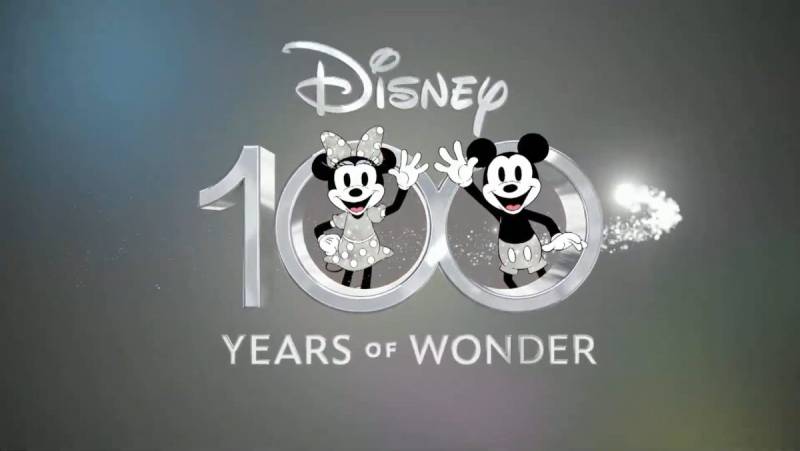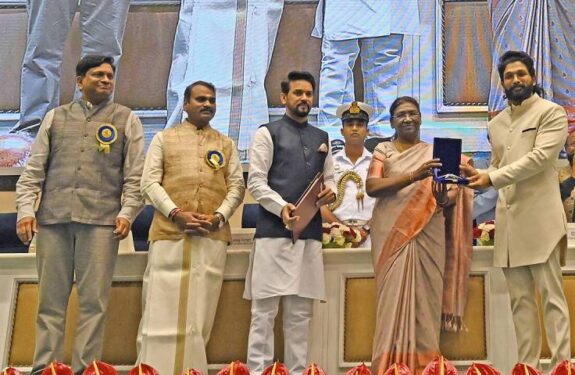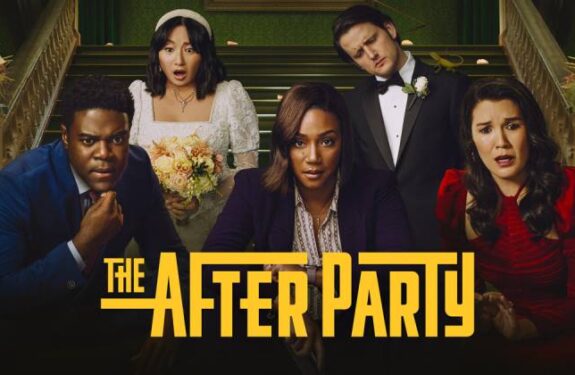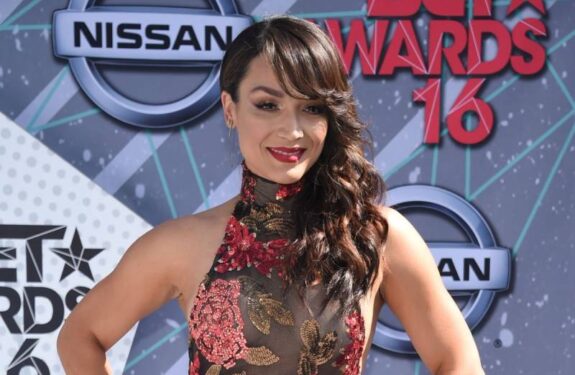October 16th commemorates the 100th anniversary of the establishment of the Walt Disney Company.
Founded by the Disney brothers, Walt and Roy, in 1923 as Disney Brothers Studio, the company officially adopted the name the Walt Disney Company in 1986. Over the course of a century, the Disney brand has garnered over 140 Academy Awards in both live-action and animated films. Walt Disney himself holds the record for competitive Oscar wins, boasting 22 Oscars from his 59 nominations. His final Oscar win was in 1968 for the work on “Winnie the Pooh and the Blustery Day.”
Considering these impressive statistics and the overall history of Oscar wins by this iconic studio, we’ve compiled our list of the top 10 favorite Disney Academy Award victories. This proved to be a challenging task, as it’s difficult to compare a well-deserved costume design win for a film like “Black Panther: Wakanda Forever” with the celebrated visual effects of “20,000 Leagues Under the Sea.” However, we persevered and present our 10 favorite Oscar wins by the Walt Disney Company.
- “Flowers and Trees” (Best Animated Short Film)
Despite the more advanced works that would follow, Disney’s first Oscar win stands out as one of our favorites due to its incredible beauty and simplicity. Part of the beloved Silly Symphony series, this short marked Disney’s first venture into color animation, employing the groundbreaking 3-strip Technicolor process. The story is uncomplicated – spring brings to life trees, flowers, and mushrooms threatened by a forest fire – yet its simplicity enhances the charm of this timeless animated classic.
- “Cruella” (Best Costume Design)
Jenny Beavan, a costume designer with 12 Oscar nominations and three wins, achieved her best work with the 2021 film “Cruella.” Set against the backdrop of the mid-1960s fashion industry, Beavan used the canvas to unleash her imagination and create stunning, thematically rich costumes. Black and white patterns underscored the inner conflict of certain characters and foreshadowed major revelations within the film. One dress dramatically transforms to reveal a more stunning creation underneath, while another appears to be entirely made of trash. “Cruella” features over 100 major costumes, but Beavan’s win is not solely based on quantity; it represents the pinnacle of work from one of today’s most creative costume designers.
- “Toy Story 3” (Best Animated Feature)
The first two “Toy Story” films, released in 1995 and 1999, predate the creation of the Animated Feature Oscar category. Therefore, “Toy Story 3” from 2010 represents the entire “Toy Story” series in this list. While the first film amazed audiences with its revolutionary computer animation and launched the powerhouse known as Pixar, and the second expanded the universe in imaginative ways, the third installment introduced a true sense of stakes and genuine emotion. It reduced parents raised on the original film to tears by the end. It even secured a spot in the expanded Best Picture category. Moreover, it introduced one of Disney’s most memorable villains throughout its 100-year history: Lots-O’-Huggin’ Bear, voiced by Ned Beatty. In that year, with only three contenders, it wasn’t much of a competition, but it doesn’t diminish the strength of the victory.
- Julie Andrews (Best Actress for Mary Poppins)
Although Julie Andrews missed out on a Tony Award for her portrayal of Eliza Doolittle in the stage production of My Fair Lady, she made the role uniquely hers. However, when Hollywood decided to adapt the musical into a film, Jack Warner controversially replaced Andrews with Audrey Hepburn. Ultimately, the film secured the Best Picture honor, but Hepburn was notably absent from the Best Actress nominations. Instead, that year’s Best Actress accolade went to Julie Andrews for her iconic portrayal of Mary Poppins, the enchanting nanny who brings a sprinkle of magic to every situation. Regardless of opinions about the film’s overall quality or its adherence to P.L. Travers’ original novel (as seen in Saving Mr. Banks), Andrews’ central performance undeniably shines. She grounds the film’s whimsical elements with practicality and an irresistible sense of joy.
- Who Framed Roger Rabbit (Best Visual Effects)
It might come as a surprise to some, but we’ve ranked 1988’s Who Framed Roger Rabbit higher than the illustrious Julie Andrews, as the nature of lists can be unpredictable. Directed by Robert Zemeckis, Who Framed Roger Rabbit is renowned for breaking Disney’s cherished “animation is sacred” principle by seamlessly merging animation with live action that had a more mature edge. The film clinched three competitive Oscars and a special achievement award, but its win for visual effects is considered one of the most outstanding in the history of the Academy Awards.
- Beauty and the Beast (Best Original Score)
Walt Disney animated films boast many exceptional scores, yet, somehow, 1991’s Beauty and the Beast surpasses them all. Fresh from the Broadway-ready score of The Little Mermaid in 1989, Beauty and the Beast not only gifted us with a treasure trove of memorable songs but also enriched the entire film with Alan Menken’s career-defining score. The movie won the Original Song Oscar for “Be Our Guest” and achieved history by securing a Best Picture nomination, a first for an animated film at the time. Nevertheless, Menken’s victory for Best Original Score underscores the true essence of the film’s power.
- Ratatouille (Best Animated Feature)
Pixar Studios has garnered the Best Animated Feature Oscar ten times, following its initial loss to DreamWorks’ Shrek in 2002. Numerous modern Pixar classics have received this accolade, making it challenging to rank them. Yet, according to our perspective, their win for Ratatouille in 2008 highlights the remarkable magic that the studio can craft. Rather than focusing on beloved toys, adorable fish, or a profoundly sincere robot, Ratatouille places one of the most despised creatures—rats—front and center in the culinary world as a budding chef. The film’s theme of “anyone can cook” democratizes any industry for aspiring dreamers, but its real heart lies in the profound monologue on criticism delivered by Anton Ego (voiced by Peter O’Toole). Writer and director Brad Bird made it evident that he wasn’t solely addressing food criticism but elevating the animated film to something that resonated with adult artists everywhere. The Academy responded accordingly with an Oscar.
- Daniel Day-Lewis (Best Actor for Lincoln)
In 2012, Disney brought Steven Spielberg’s magnum opus, Lincoln, to the silver screen through its Touchstone Pictures label. Leading up to the film’s release, tales of Oscar-winner Daniel Day-Lewis’s unwavering commitment to remaining in character even after the cameras ceased rolling had circulated widely. When the film finally premiered, it became immediately apparent that Day-Lewis’s dedication to his performance had paid off tremendously. Day-Lewis broke away from conventional biopic conventions by infusing humanity into one of America’s greatest presidents. His portrayal adeptly navigated the film’s intricate political intricacies with an authenticity and complexity that arguably marks the pinnacle of the illustrious actor’s on-screen career. Although the film fell short of securing well-deserved Best Picture and Best Director honors, Day-Lewis’s Best Actor win was the evening’s most obvious choice, and no one else came close.
- Pinocchio (Best Original Song for “When You Wish Upon a Star”)
Among the plethora of Disney songs that have earned the Original Song Oscar, “When You Wish Upon a Star” from 1940’s Pinocchio stands as the gold standard that has yet to be surpassed. This simple ballad, dedicated to dreamers everywhere, has essentially become the hallmark of the Walt Disney Company itself. Every time the iconic castle logo appears before a Disney film, strains of this song accompany the image. While numerous outstanding, Oscar-winning songs have originated from Disney films (with at least one non-winner outranking winners – “Part of Your World” from The Little Mermaid), this composition by Leigh Harline and Ned Washington may never be eclipsed for its ability to embed itself in our collective consciousness.
- Snow White and the Seven Dwarfs (Honorary Academy Award for Screening Innovation)
Last but not least, we arrive at what will undoubtedly be viewed as the most glaring choice for the finest Oscar-related accomplishment by the Walt Disney Company. Technically, it wasn’t a conventional win. Back in 1937, the Academy didn’t have specific Oscar categories to acknowledge animated features because, prior to Snow White and the Seven Dwarfs, there weren’t any animated features. It wasn’t nominated for Best Picture in 1937 either. However, the Academy recognized something equally momentous and revolutionary in this classic tale. What makes this the ultimate Oscar victory is not just the exceptional quality of the film, but the very Oscars themselves. Walt Disney received one regular-sized Oscar statuette accompanied by seven diminutive Oscars (presented by Shirley Temple). Truly, the stuff of legends.
Disclaimer: The views, suggestions, and opinions expressed here are the sole responsibility of the experts. No Indiana Sphere journalist was involved in the writing and production of this article.




